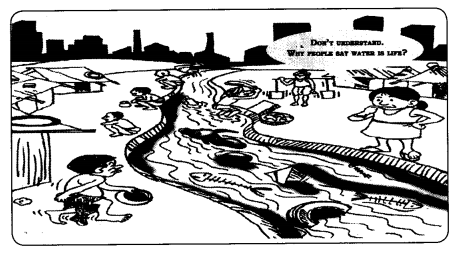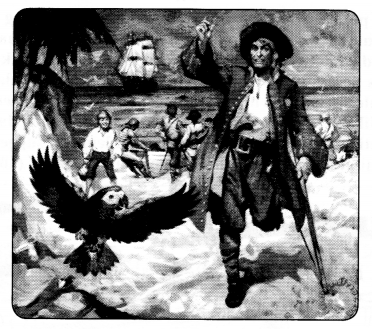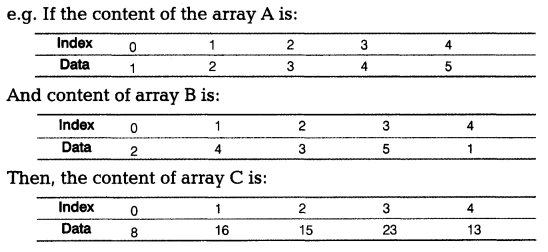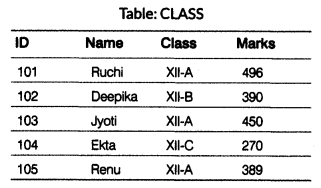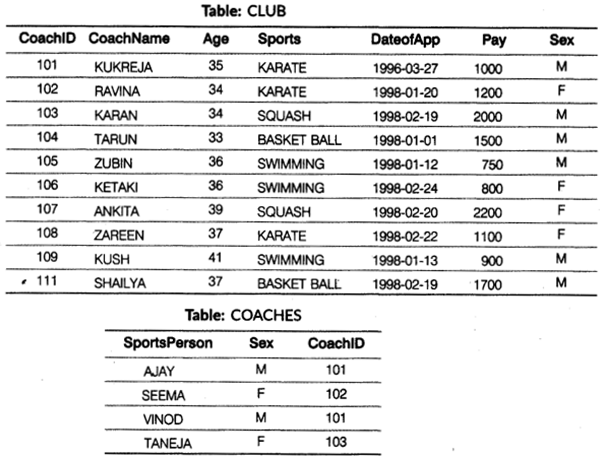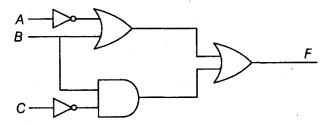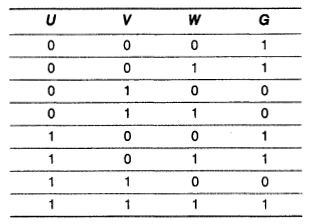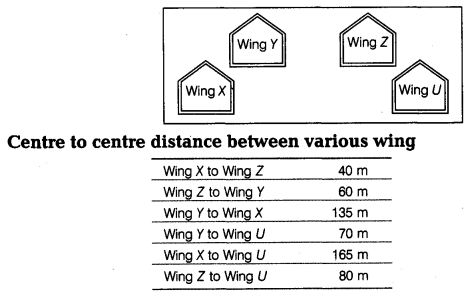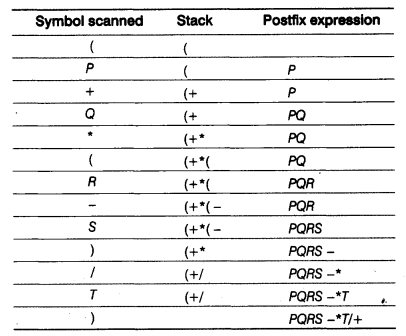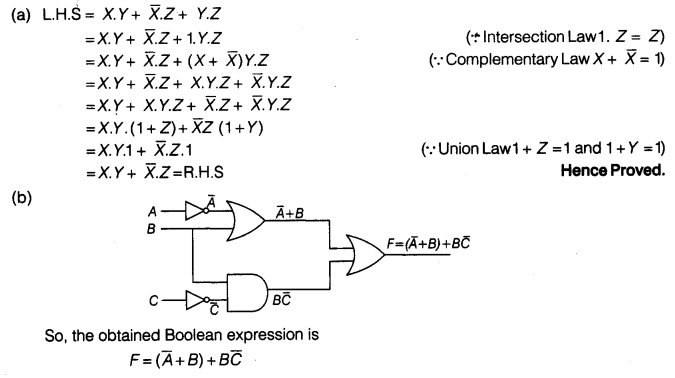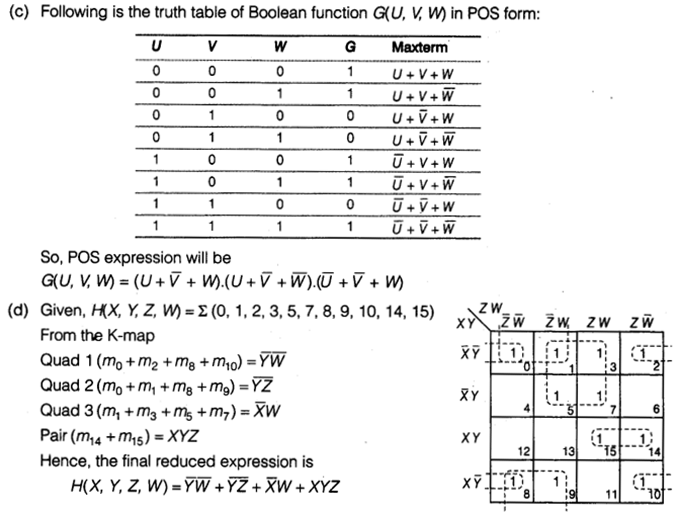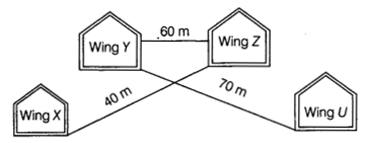CBSE Sample Papers for Class 10 English Language and Literature Paper 4 are part of CBSE Sample Papers for Class 10 English. Here we have given CBSE Sample Papers for Class 10 English Language and Literature Paper 4.
CBSE Sample Papers for Class 10 English Language and Literature Paper 4
| Board | CBSE |
| Class | 10 |
| Subject | English Language and Literature |
| Sample Paper Set | Paper 4 |
| Category | CBSE Sample Papers |
Students who are going to appear for CBSE Class 10 Examinations are advised to practice the CBSE sample papers given here which is designed as per the latest Syllabus and marking scheme, as prescribed by the CBSE, is given here. Paper 4 of Solved CBSE Sample Papers for Class 10 English Language and Literature is given below with free PDF download Answers.
Time: 3 Hours
Maximum Marks: 80
General Instructions
- The paper consists of 3 sections: A, B, C.
- Attempt all the questions.
- Don’t write anything on the question paper.
- Read each question carefully and follow the given instructions.
- All the answers must be correctly numbered and written in the answer sheet provided to you.
- Strictly adhere to the word limit given in the question paper. Marks will be deducted for exceeding the word limit.
- Ensure that questions of each section are answered together.
SECTION A
(Reading – 20 Marks)
Question 1.
Read the passage given below and answer the questions that follow: (8)
The Camera Can Lie-Sometimes
1. Much to their annoyance, pen-pushers are routinely reminded that a picture is worth a thousand words—except that sometimes they can be wrong “words” as happened last week when Reuters was forced to withdraw more than 900 pictures taken by a freelance photographer after it was suspected that he had “doctored” two recent photographs of the Israeli-Lebanon conflict.
2. In one picture, the smoke billowing from an apartment block after an Israeli air strike was allegedly thickened by the photographer, Adnan Hajj, to dramatize the impact of the bombardment – and in another two flares were suspected to have been added to an image of an Israeli jet in action over Lebanon.
3. The allegation of doctoring, first made by several bloggers, was confirmed by Reuters after an in-house investigation. Mr. Hajj, who had sold pictures to Reuters for more than 10 years, denied manipulating the two photographs and attributed the thick smoke in the first picture to “bad lighting” and the fact that he was “trying to remove dust marks.” As for the second, he said, “there was no problem with it – not at all.”
4. But Reuters was not convinced and said it was removing all of these pictures from its database and would not be using his service anymore. “This represents a serious breach of Reuters’ standards and we shall not be accepting or using pictures taken by him,” the news agency said.
5. The idea that the camera never lies is as misleading as the notion that all statistics are meant to mislead. What the “eye” sees is not always what it looks like, thanks to the many ways in which first the camera and then the photograph can be – and is often – manipulated. Indeed, a photograph can be manipulated in more ways – and more effectively – to convey a false reality than it is possible to go through the written word. Ask any clever photographer and he will tell you the tricks camera be made to play.
6. At a seminar recently, one journalist recalled how there was a time when British photographers, covering stories about famine or floods in Third World countries, would cany teddy bears ’ with them in order to use them as prop for pictures supposedly showing that all that was left in household, stricken by death and destruction, were children’s toys. (Source: The Hindu)
1.1. On the basis of your reading of the passage, answer any eight the following questions in brief: (1 x 8 = 8)
(a) Why was Reuters forced to withdraw the pictures?
(b) What was Adnan Hajj accused of?
(c) Why is photography manipulated?
(d) Teddy bears were used as props.
(e) What is the meaning of ‘doctored’?
(f) Which statement in the passage resembles the idea that he is ‘camera never lies’ is also misleading?
(g) What has been reminded by pen pushers?
(h) Who can tell us about the tricks played by the camera?
(i) Find the word in paragraph 3 which means the same as ‘controlling’.
Question 2.
Read the passage given below and answer the questions that follow: (12)
1. Advertising was initially meant to make people aware of the goods available in the market. It was as simple as announcing what you have in your store or the services you offer in your premises. Over the years, advertising has evolved into a major industry that beyond informing to persuading and influencing. It is a form of brainwashing consumers.
2. Advertising has become a type of culture with ardent followers. In the process, it attracts enviable attention from manufacturers and service providers who fancy an edge over their competitors. Unfortunately, in keeping with the ever-increasing demands of the manufacturers, the advertisers have resulted to creating unnecessary wants and excess consumption in most of us. This is craving for harmful products that we are better off without. It preys on our minds rendering us completely irrational. The billboards (hoardings), television and radio advertisements target us from a very early age, forming our view of the world as we grow into adults. The buzzwords in advertising are, ‘you are cool and sophisticated’, if you use this or that product.
3. The notion that the media is primarily in place to give us news is not very true. If the truth may be told, the media is there to gather enough audience, package them into a pricey commodity and sell it to the advertisers. The advertisers, on the other hand, are always on the lookout for a target audience to persuade them that this product or service is better than that of the competitor.
4. Advertising does influence people. Most of the advertisements are filled with images that equate emotional well-being with material acquisition and associate independence and leisure with consumption of alcohol. Advertising also makes people lavish their products rather than real people, thereby destroying human relationships. We have become trapped in the web of advertising where products like brands of beer and cigarette take over our minds, doing away with our core family values.
5. When you look critically at most of the advertisements on the television, you will discover how persuasive the advertisers are in deciding for us what, when, how much and why to buy. But most people think that they are not influenced by advertisements. This is precisely what the advertisers want us to think, that in the end ‘the people decide’. If you think deeply, nobody in this profit-minded sense will pay so much money to make a thirty-second advertisement, which might not be seen by a hundred people, leave alone convince them to buy. How we strike a healthy balance between the two will definitely have a direct bearing on the future of our country.
2.1. On the basis of your reading of the passage, answer any four of the following questions in brief: (2 x 4 = 8)
(a) What was the purpose of advertising?
(b) How do advertisements make us irrational?
(c) How does advertising affect us?
(d) Give an example to show that people become trapped in the web of advertising.
(e) What do you discover when you look at advertisement critically?
2.2. On the basis of your reading of the passage, answer any four of the following: (1 x 4 = 4)
(a) Find the word in paragraph 2 which means the same as ‘strong desire’.
(i) desperate
(ii) wish
(iii) craving
(iv) urge
(b) Advertising has changed into ………..
(i) a major sport
(ii) a major industry
(iii) gym
(iv) a stadium
(c) Advertisements are generally filled with ……….
(i) pictures
(ii) colors
(iii) images
(iv) dresses
(d) …………. convince people to buy things.
(i) Books
(ii) Images
(iii) Looks
(iv) Advertisements
(e) In paragraph 5, ……… means ‘exactly’.
(i) vague
(ii) doubtful
(iii) precisely
(iv) strictly
SECTION B
(Writing & Grammar – 30 Marks)
Question 3.
Water scarcity in some of the areas has created a lot of problems. Write an article in about 100-120 words on “Conservation of Water: The Need of the Hour”.
OR
You are Arjun Kapoor, the resident of 43/9, Shyam Enclave, Delhi. You visited Manali with your family during the summer vacation. You had two double suites at Lake View resort. Your stay at the hotel fell far short of the description in the brochure. Write a letter of complaint to the Customer Service Department to refund for your hotel stay.
Question 4.
Complete the following story in about 150-200 words. (10)
Suresh worked in a factory. He was a watchman. He was very brave. One day he saw that Mithun was stealing something from a factory. He caught him red-handed. Mithun tried ………
OR
Given below is an outline of a story. Taking help from the outline, develop an interesting story in about 150-200 words.
Outline: Sachin and Amit arrived at a hill station/decided to explore the place on their own/ visited few tourist places/both returned home disappointed.
Question 5.
Fill in any four gaps by choosing the most appropriate words from the options given below. (1 x 4 = 4)
My mother was both a mother and a father (a) …….. me. She taught us the right values. Until she passed away, (b) …….. all looked towards her (c) …….. support. We were very scared of her. She was a wonderful cook (d) ……… taught us all how to cook. She (e) ………. to provide emotional support to us.
(a) (i) to (ii) of (iii) in (iv) at
(b) (i) they (ii) we (iii) she (iv) then
(c) (i) of (ii) for (iii) in (iv) at
(d) (i) or (ii) and (iii) but (iv) until
(e) (i) uses (ii) used (iii) using (iv) were use
Question 6.
The following passage has not been edited. There is one error in each line. Write the incorrect word and the correction against any four lines of the passage. (1 x 4 = 4)

Question 7.
Rearrange any four of the following groups of words and phrases to form meaningful sentences: (1 x 4 = 4)
(a) today / with / their / the / in / gadgets / children / bom / are / hands
(b) games / and / surf / they / to / video / love / intemet / play
(c) these / only / lives / their / technology / wonders revolve / of / around
(d) hampered / any / their / game / they / outdoor / as / growth / is / physical / do not / play
(e) play / physical / ground / in/ campus / education /is / and / imported
SECTION C
(Literature : Textbook & Long Reading Text – 30 Marks)
Question 8.
Read the extracts given below and answer the questions that follow: (1 x 4 = 4)
Never shall a young man
Thrown into despair
By those great honey-colored
Ramparts at your ear.
(a) Who is the speaker?
(b) Who is the speaker talking to?
(c) What do you mean by the ‘honey colored ramparts’ here?
(d) Why does a young man love a young woman, according to the poet?
OR
There was no answer. The radio was dead too. I had no radio, no compass and I could not see where I was. I was lost in the storm. Then in the black clouds quite near me, I saw another airplane. It had no lights on its wings, but I could see it flying next to me through the storm. I could see the Pilot’s face-turned towards me. I was very glad to see another person.
(a) What surprised the speaker most?
(b) What did he see in the black clouds?
(c) Why couldn’t he contact the Paris Control?
(d) Where was the narrator going?
Question 9.
Answer any four of the following questions in 30-40 words each: (2 x 4 = 8)
(a) What encouraged the policy of apartheid in South Africa?
(b) Justify the title of the story “The Hundred Dresses”.
(c) Who robbed Shotover Grange? Whom did the police arrest and why?
(d) How do you assess Griffin as a scientist?
(e) How was Lencho’s life affected by the rain?
Question 10.
Answer any one of the following questions in about 100-120 words: (8)
Baking was considered an essential and profitable profession in a traditional Goan village. What reasons does the writer give to support his point?
OR
‘Presence of mind and intelligence is more powerful than a gun.’ How far is it true in case of Ausable, the secret agent?
Question 11.
Answer any one of the following questions in about 200-250 words: (10)
Write a brief pen sketch of Mrs. Edith Frank.
OR
What restrictions were imposed on the Jew’s freedom? How did the laws affect the Frank family?
OR
“Miss Sullivan’s method of imparting education to Helen was unique.” Elaborate this statement.
OR
“Mr. Michael Anagnos was an important character.” Write a character sketch of Michael Anagnos.
Answers
Answer 1.
(a) Reuters was forced to withdraw pictures as it was suspected that he had doctored two recent photographs of the Israeli-Lebanon conflict.
(b) Adnan Hajj was accused of doctoring the photos.
(c) Photography is manipulated to convey a false sense of reality.
(d) to interest the children.
(e) It means to falsify.
(f) All statistics are meant to mislead.
(g) A picture is worth a thousand words.
(h) A clever photographer.
(i) Manipulating.
Answer 2.
2.1. (a) Advertising was meant to make people aware of the goods available in the market.
(b) Advertising creates unnecessary wants and excess consumption in most of us. This is a craving for harmful products that we are better off without. It preys on our minds rendering us completely irrational.
(c) Advertising does influence people. Most of the advertisements are filled with images that equate emotional well being with a material acquisition and associate independence and leisure with consumption of alcohol.
(d) We have become trapped in the web of advertising where products like brands of beer and cigarette take over our minds, doing away with our core family values.
(e) How persuasive the advertisers are in deciding for us what, when, how much and why to buy.
2.2. (a) (iii) craving
(b) (ii) a major industry
(c) (iii) images
(d) (iv) Advertisements
(e) (iii) precisely
Answer 3.
Conservation of Water
Water is a natural resource. It is very precious. Earth’s natural resources are depleting at an alarming rate due to the increase in human population, rapid industrialization, and urbanization. Trees are being cut indiscriminately and the result is groundwater levels are falling and the day is not far when wars will be fought for water. It is needless to say that water is the most essential resource for life. If we need water in the future we should conserve it urgently. We can save water in many ways. First of all the taps should be used properly and kept turned off always. Water should not be wasted while bathing or washing floors. Reuse water wherever possible. Fix alarm to water tanks so that overflow can be prevented. We must keep in mind that water should be conserved, not wasted. Conservation helps prevent water pollution in nearby lakes, rivers, and local watersheds. Conserving water is something that we all should do.
OR
43/9, Shyam Enclave
Delhi
12th July, 20xx
Customer Service Department
Lake View Resort
Manali
Sub: Complaint about the double suites
Ref. No: Holiday reference Number BM 3278 M
Sir,
I had booked two double suites of rooms, 111 and 112, at your resort for a week from 10.05.20xx to 16.05.20xx for me and my family. My central complaint is that the hotel fell far short of the description in the brochure.
Although the rooms were billed as four-star accommodation, they were cramped, and the furnishings were worn out and dirty. The hotel grounds, described in the brochure as “Pleasant, tranquil, and spacious”, were in fact next to a busy main road. The swimming pool was closed for repairs.
I registered a formal complaint with the front office detailing these issues. I feel that we are due to a full refund for this hotel stay as it failed to meet our expectations and ruined our holiday. Looking forward to a prompt reply.
Yours faithfully
Arjun Kapoor
Enel: Copy of the bill
Photographs for evidence
Answer 4.
Suresh worked in a factory. He was a watchman. He was very brave. One day he saw that Mithun was stealing something from a factory. He caught him red-handed. Mithun tried to give him half of the share but Suresh was a trustworthy and faithful servant. He could not be dishonest. He has always believed that honesty is the best policy. Mithun threatened him with ‘ dire consequences if he disclosed his name. But Suresh did not give in to his threat. Suresh caught hold of him (Mithun) and tried to drag him to the owner. But Mithun was stronger than him (Suresh) and overpowered him. Mithun took out a knife and stabbed him. But Suresh caught hold of him tightly with his strong arms. Meanwhile, some other workers heard the noise and reached there. All of them started beating Mithun. The master also came hurriedly. He informed the police about it and the police arrested Mithun. The master was impressed with Suresh’s honesty and bravery. Suresh was promoted and awarded by the owner. Honesty always pays.
OR
Sachin and Amit decided to go to Shimla during their autumn break. This time they had planned to travel without their parents and explore the place on their own. They had done research on the internet and had chalked out their plan accordingly. They did ail their booking outline. Everything seemed to be exactly as they had planned. Little did they know that their trip would end before it took off. They got off at Kalka and decided to take the mini train to Shimla. The train crawled slowly through the thick forest and bridges over gushing streams. Sachin and Amit decided to jump off the train to take some pictures. The train was running at a speed less than 15-20 km/hr. Judging the speed they both were sure that they could run and catch the train in five minutes. After clicking a few photographs they ran towards the train, Sachin hit a big boulder and fell down. He gave out a big scream. He had fractured his leg. Amit panicked but had the presence of mind to run along and signal to the driver to stop the train. Some passengers carried Sachin back to the train. The drivers informed the police about the emergency. When the train entered the station they saw an ambulance waiting for them. It took them to the nearest hospital where his leg was put in plaster. They came down the very next day.
Answer 5.
(a) (i) to
(b) (ii) we
(c) (ii) for
(d) (ii) and
(e) (ii) used
Answer 6.
Incorrect Correction
(a) on at
(b) being be
(c) exploring explore
(d) that those
(e) disappears disappeared
Answer 7.
(a) Today the children are born with gadgets in their hands.
(b) They love to play video games and surf the internet.
(c) Their lives revolve around these wonders of technology only.
(d) Their physical growth is hampered as they do not play any outdoor game.
(e) Physical education is imported in playgrounds and campus.
Answer 8.
(a) The young man is the speaker.
(b) The young man is talking to a young woman.
(c) The woman’s yellow hair.
(d) A young man loves a young woman because of her physical beauty.
OR
(a) The speaker was surprised to see his compass and radio, almost dead.
(b) He saw another airplane in the black clouds.
(c) He could not contact Paris Control because his radio failed to work.
(d) The narrator was going to England.
Answer 9.
(a) South Africa attracted the white people because of its minerals and gems. The war for domination ensued henceforth. After the Anglo-Boer war, the white people started ruling over the native black-skinned South Africans. This system of racial domination i.e. the apartheid was used to exploit the blacks.
(b) Wanda was a gifted painter. She had drawn exquisite hundred designs of beautiful dresses. If she had the fabric she would have made hundred real dresses. That’s why she called them dresses and not designs. She gifts these dresses to the girls. They felt sorry for her. Hence the title is perfectly appropriate.
(c) Actually, it was the lady-in-red who robbed the Shotover Grange. The police arrested Horace Danby because his fingerprints were found all over the room and on the safe. Nobody believed him when he said that the owner lady asked him to do so.
(d) Griffin was a brilliant scientist. He invented some drugs and made himself an invisible man. But he misused his scientific discovery and became a lawless person. Griffin was thus not a true scientist.
(e) Lencho was a hard-working farmer. He lived with his family on the crest of a low hill. He was going to get a very good crop this year. His field needed only a downpour. The rain started. But within a very short time, the rain turned into hailstones. It destroyed his crop completely. Thus the rain affected his life badly.
Answer 10.
Goa is very much influenced by the Portuguese. Baking was considered an essential and profitable profession in a traditional Goan village. The Portuguese are famous for preparing the loaves of bread. We can come across the bakers of bread. It is their traditional family work. The villagers were much fond of the sweet bread known as ‘bol’. The marriage gifts were meaningless without it. So the baker’s furnaces were essential. ‘Cakes’ and ‘bolinhas’ formed an important item on various occasions like Christmas and other festivals. The baker would collect the bill at the end of the month. They recorded their accounts on the wall in pencil. Baking was a profitable business in the old days. The baker and his family never starved and they looked happy and prosperous.
OR
A good spy need not be handsome, attractive and smart. Physical strength can be an added advantage but certainly not the essential one. Secret agents have to face critical situations at every step. One night, Ausable found Max in his room. There was an automatic pistol in his hand. He had come there to take the report from Ausable. Max was also a secret agent of another organization. Ausable was not the least afraid of Max’s presence. He thought of a clever trick. He convinced Max about a balcony outside the window. Just then there was a loud knock at the door. Ausable told Max that it was police to provide him security. Max had no time to think. Max rushed towards the window and dropped to the non-existent balcony and met his tragic end. Ausable did not use physical strength. He won over the critical situation by his sheer presence of mind.
Answer 11.
Mrs. Edith Frank was the mother of Anne and Margot Frank. She was born in 1900 as Edith Hollanders in Aachen, Germany. She .lived a luxurious life since her family was well placed. Servants were employed to help her in running the household. She married Mr. Otto Frank in 1925 who was eleven years older to her. They lived a comfortable life in Frankfurt, Germany, where both Margot and Anne were born. In 1933, the Franks moved to Amsterdam, Holland to escape Hitler’s persecution of the Jews in Germany. When the Nazi invaded Holland, she went into hiding with her family in 1942. Anne realized her mistake of misjudging her mother when she grew mature. However, Mrs. Edith Frank was affectionate and displayed good negotiable skills. She proved logical while resolving adults’ fights in the Annexe. Hailing from a rich background, she could not adjust to the life of the Annexe where the scarcity of basic necessities, cramped quarters and putting in hard work greatly irritated her. All these frustrations were vented out on her younger daughter Anne who thought her to be far removed from an Ideal Mother. Mrs. Frank’s partial attitude towards Margot infuriated Anne and intensified her negative feelings about her mother. Therefore she presented her mother in a negative way throughout the diary.
OR
The Franks left Frankfurt, Germany to move to Holland to escape the persecution of Hitter and the Nazis who had overtaken Germany. Bu’ when the Germans invaded Holland in 1940, the same laws imposed on Germany were extended to the Netherlands. Anne thinks the laws are unjust. She explains how the condition of the Jewish people is worsening. It is unfair that Jews cannot use streetcars, that they must wear yellow stars and attend schools meant for Jews. Though she is optimistic about her family’s safety and states that life is bearable, she realizes that they are not safe. Having been forced into hiding, Anne’s entire life and worldview is quickly transformed. She hears her friends are taken to concentration camps. Her fears grow and fail to understand why the Jewish people have been segregated for this discrimination and restrictions are imposed on them. She also questions why she remains quite safe where her friends outside are facing adverse times. On hearing that the Dutch are becoming more anti-Semitic. She is disheartened but remains quite optimistic about the future of the people at large.
OR
A wonderful teacher transforms the lives of his pupils. Real learning is possible only when the learner is ready to receive it and the teacher is genuinely involved to impart the fundamentals of education. “Any teacher can take a child to the classroom, but not every teacher can make him learn”. The arrival of Miss Sullivan was the turning point in the life of Helen. Miss Sullivan’s love for details and descriptive competency was par excellence. Above all, she was familiar with the psyche of the child. Amidst a free environment, Helen was bound to make unprecedented progress. She believed in the depth of knowledge. Sullivan took Helen out of doors to learn about facts of life. Nature was a great teacher and she incorporated this subject to supplement her teaching. The pearls from varied books were also incorporated. It was a joyful experience for Helen and she actively participated in the teaching-learning process. She had learned to accept life as it was offered to her and made the best use of the gift of life that was given to her. Helen felt an inner urge in the quest of knowledge and now generations treasure her, all due to the indomitable determination of Keller and the exemplary role of Miss Sullivan.
OR
Mr. Michael Anagnos was the director of the Perkin Institution for the blind. He recommended Miss Anne Sullivan to be Helen’s private teacher and both of them were bounded in a strong pupil-teacher relationship. He persuaded Anne to bring Helen to study every now and then at the Perkin Institution and introduced her to many people who lived in Boston. Being a good friend of Helen, he encouraged and appreciated her compositions. He got ‘The Frost King’ published in the Institution’s annual report. Soon Helen’s progress began to spread all around the United States. Anagnos hoped that Helen’s successes would prove a good advertisement for the Perkin Institution which had educated Anne as he teaches. But he was horrified to discover that the story was not the original composition of Helen. He remarked that Anne Sullivan had acted too strongly to support Keller in order to win praise for her own success with Helen. This incident put an end to their relationship and both of them could never patch up again.
We hope the CBSE Sample Papers for Class 10 English Language and Literature Paper 4 help you. If you have any query regarding CBSE Sample Papers for Class 10 English Language and Literature Paper 4, drop a comment below and we will get back to you at the earliest.


